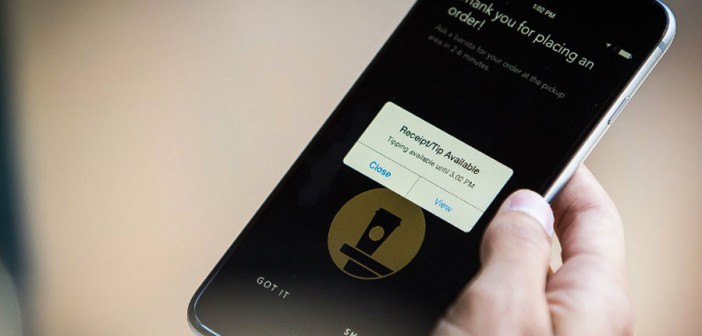Starbucks: mobile app is a win-win for consumers and the brand
With app install ads having been introduced to both Google‘s Double-Click bid manager and Snapchat already so far this year, it’s clear that the popularity of apps is on the rise, writes Shenda Loughnane, global strategy director at iProspect.
Apple announced that it passed the 100bn mark on app downloads via its App Store midway through last year. That means the App Store has seen roughly 14 times the amount of app downloads as there are people on the planet.
Developing apps is clearly top of mind for brands then, and a set trend for this rest of this year. The appetite is there, phone memory is increasing – but what actually makes for a successful branded app, and what is likely to see branded apps left downloaded, but largely unopened?
While consumers are indeed downloading more and more apps, branded apps in particular have to do three things.
Be personalised
Consumers are unlikely to download or use an app if it isn’t differentiated from the mobile browser experience. They’ll want to see curated suggestions on purchases, or location-based information that makes using the app worthwhile, for example.
Be adaptive
Consumer demands on apps are constantly changing, and new competitors enter the market constantly. Any branded app needs to move with the times, and follow the changing behaviour of a particular consumer in order to survive. Being open to integrations with new apps should be on the agenda, for example – so think about how Facebook Messenger is integrating with Uber, and how partnerships like this add value.
Be valuable
Branded apps need to add value, and do so consistently. The overall objective of developing them is to differentiate and elevate the position of the brand within the market. If the app is downloaded and used once by the majority of users because it’s got a poor value proposition or is a novelty, then it’s simply not worthwhile.
With this in mind, here’s a few branded apps that I think really work, and serve as good examples of how to ride the app zeitgeist – and avoid falling off.
Charmin – SitOrSquat
Spotting a gap in the market, Charmin helps you find public toilets when you’re on the go, and even lets users rate the bathrooms. Who would have thought that a toilet paper brand could develop an app that’s so relevant and useful?
Hilton – Hhonors
As a fairly frequent traveller, I really appreciate apps that make the whole process easier. Hilton’s Hhonors does that – you can check-in via the app, it acts as your door key, but you can also manage bookings and loyalty points. It’s an app that’s so entwined in the Hilton brand, while helping the hotel go above and beyond in terms of customer experience.
Nike – Nike+ Running
Nike was really ahead of the game in moving in on the ‘quantified self’ and understanding that its audience of fitness fanatics love tracking their progress, competing with their friends and publishing their success online. It’s created a whole culture of Nike fans that sits outside of just buying its sports gear. Although it does allow for logging trainers and prompts users to replace them frequently, so it has savvy commercial elements too.
Hotel Tonight
Hotel Tonight is a really useful app that allows hotel brands to advertise any remaining rooms for that evening at cheaper prices. Great for hotels looking to fill rooms, and for travellers looking for a deal at short notice. However, its positives also come with a side dollop of caution. Google is increasingly making app content searchable via the same process that it uses for sites – so in the case of Hotel Tonight, unless it offers something more in terms of content and utility, its app may become redundant.
Starbucks
Starbucks processes millions of mobile payments via its app every week. In fact, it saw around a fifth of its US transactions take place via its mobile app in Q4 2015, which has been downloaded by 11.1m Americans. It’s a resounding success because it speeds up orders (meaning you get your coffee quicker, and Starbucks can sell more coffee, faster) whilst offering a rewards scheme, that gives something back to the most loyal Starbucks fans. Win, win.




